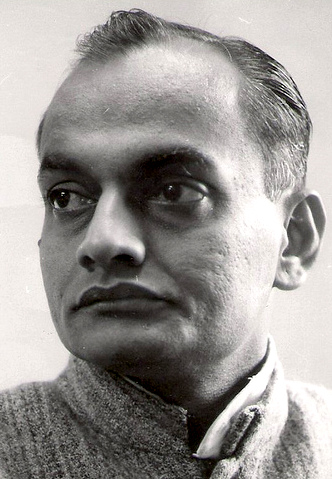‘Diaries are not always truthful. They record the minutiae but miss the essence.’
When Emergency was declared on 26 June 1975, I was Deputy High Commissioner. I kept in touch with my close friend H.Y. Sharda Prasad, Information Adviser to the Prime Minister. On 20 July he wrote me this half revealing half concealing letter:
“20 July 1975
My dear Natwar,
I was just reading an article of Schlesinger in Daedalus on the historian as participant. I cannot claim to be a historian. Nor am I a participant: at best a fitful witness. Nine and a half years ago, when I took up this job, I imposed on myself a self-denying ordinance—that I would keep no diary, make no notes. Diaries are not always truthful. They record the minutiae but miss the essence. They are also self-serving, for a diarist always has a future reader in mind except perhaps the mediaeval monk who confessed on paper as a form of psycho religious masturbation. And then, I knew that any diary would be a very fragmentary story. Being so near the top haven’t we so often felt that though we know more than others, how little we really know?
This feeling of how little I really know has overwhelmed me in the last three weeks. And that is why I have been so uncommunicative even when you have been sending very un-understandable demands for facts, names, details, numbers and other such palpable that a diplomat or ex-editor needs.
The numbers are very large, but so many whom one would have expected to have been rounded up have been left well-alone—much to their discomfiture like Nijalingappa, Sanjiva Reddy, S.K. Patil, Atulya Ghosh, Kriplany, Kamraj. It is…those who were directly responsible for making a deal with the R.S.S and handing over the reins of the projected movement to Nana Deshmukh, have been rounded up. And all those organisers of RSS, Anand Marg, Jamat, the Chhatra Sangrash Samities or Jan Sanhrash Samiti of Bihar have also been nabbed. As regards the particular gentleman about whom you asked another person on the telephone, he too has been held but a day after you telephoned. There are strictest instructions that no name should be mentioned, and these are being very scrupulously observed. You would be surprised at how little leaks out—and I have always thought that the government of India was a lemon-squeezer.
The real problem is: What happens next? What will be the strategy of rehabilitation? Obviously ‘them days’ are gone forever. But what will be the outlines of the new balance? To quote the Vedic Sutra: ‘Perhaps only the gods know or who can say whether even they know’
I have written this as a roundabout apology for how little help I have been to you. As for friends of India their instinct and yours and mine is right that this country and this person can never be despotic, and the entire operation was necessary to save our political structure. When we speak of our political structure or aims, the leftists only speak of socialism, the Anglo-US-European liberals only of pluralistic democracy, neither group gives much importance to secularism. Secularism is the base of Indian democracy. The cardinal mistake of JP and company was to hand over the controls to RSS and no man in his sense can ever say that an RSS-led Opposition Front can preserve a system based upon religious tolerance and equality.
Yours
H. Sharda Prasad.”
****
In the past week I have read two worthwhile books. Bhaswati Mukherjee’s (ex IFS), “Bengal and its Partition: An Untold Story”. It is brilliant, explosive, mildly pugnacious. Her conclusion is that partition could have been avoided if Congress leaders, particularly Jawaharlal Nehru and Sardar Vallabbhai Patel had stood up to Mountbatten, a minor royal in unseemly hurry. Attlee, the British Prime Minister had announced in the House of Commons that Britain will transfer power to India on June 1948. Why was the date changed to 15 August 1947. To this day no one knows.
Bhaswati is a product of the Bhadralok aristocracy but without a chip on her shoulder. I don’t know which to admire most—her candour and sincerity or her style. In every way her book makes compelling reading.
****
A.S. Panneerselvan’s Karunanidhi: A Life is not only a gripping account of the long life of a charismatic, multifaceted, courageous individual, but also a history of the Dravidian movement, of which Karunanidhi was a pivotal figure. He was a first rate politician, author, playwright, actor, orator, organiser, jailbird, endowed with exceptional leadership qualities. He was the brightest star of the DMK and the inventor of the atheistic and secular Self-Respect Movement, which successfully challenged the dominance of the Brahmin community.
The author has defined the characters of the notable Tamil leaders beginning with Periyar, Rajaji, C.N. Annadurai, Nedunchezhian, Murasoli Maran, M.G. Ramachandran, Kamraj, Moopanar etc., and the chronic tussle between the DMK and AIADMK.
As the decades rolled by, Karunanidhi became a national personality, well known in Delhi, Bombay and other parts of India. But for the DMK members in the Lok Sabha, Indira Gandhi would have had a much tougher time than she did. By 2011 he became, “Samathura Periyar Kalaignar”. Five-time Chief Minister, he changed the face of Tamil Nadu. This is a remarkable biography, with extraordinary psychological revelations, a totally gratifying performance by a man of vast learning.
I must, however, point out one glaring gap—why no Index?

